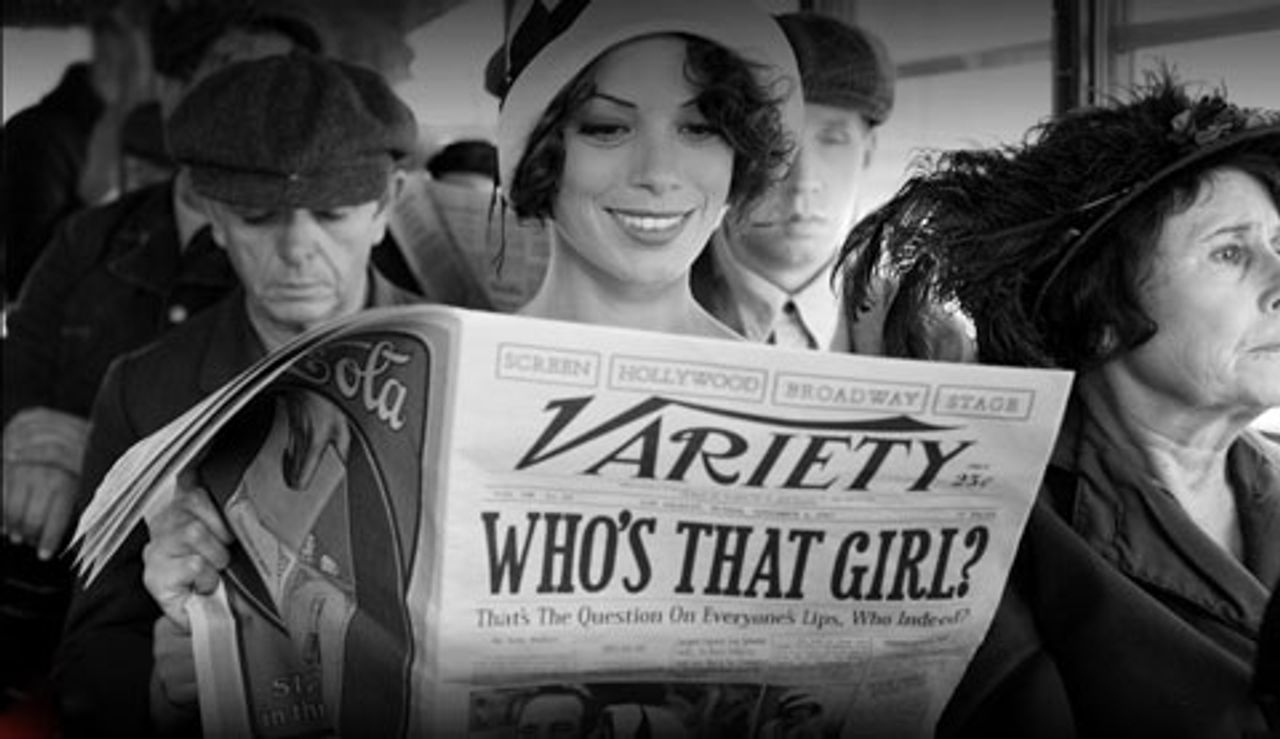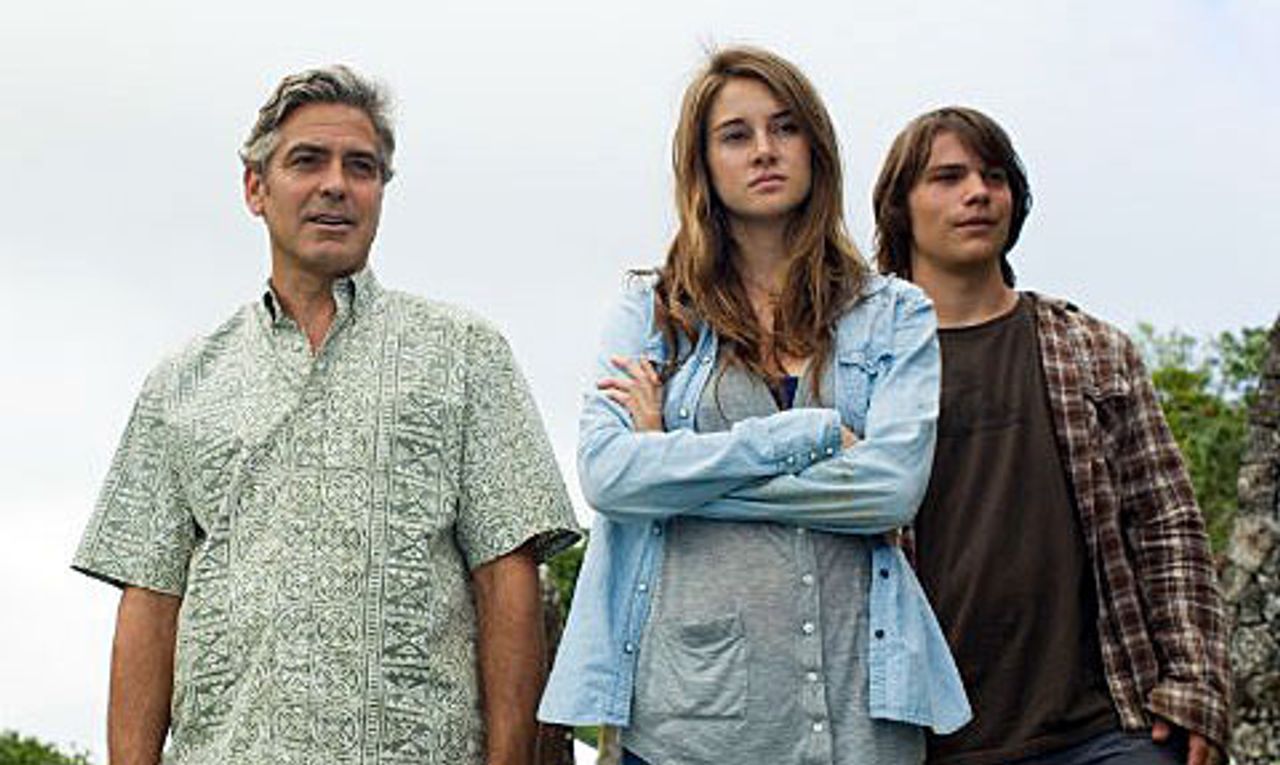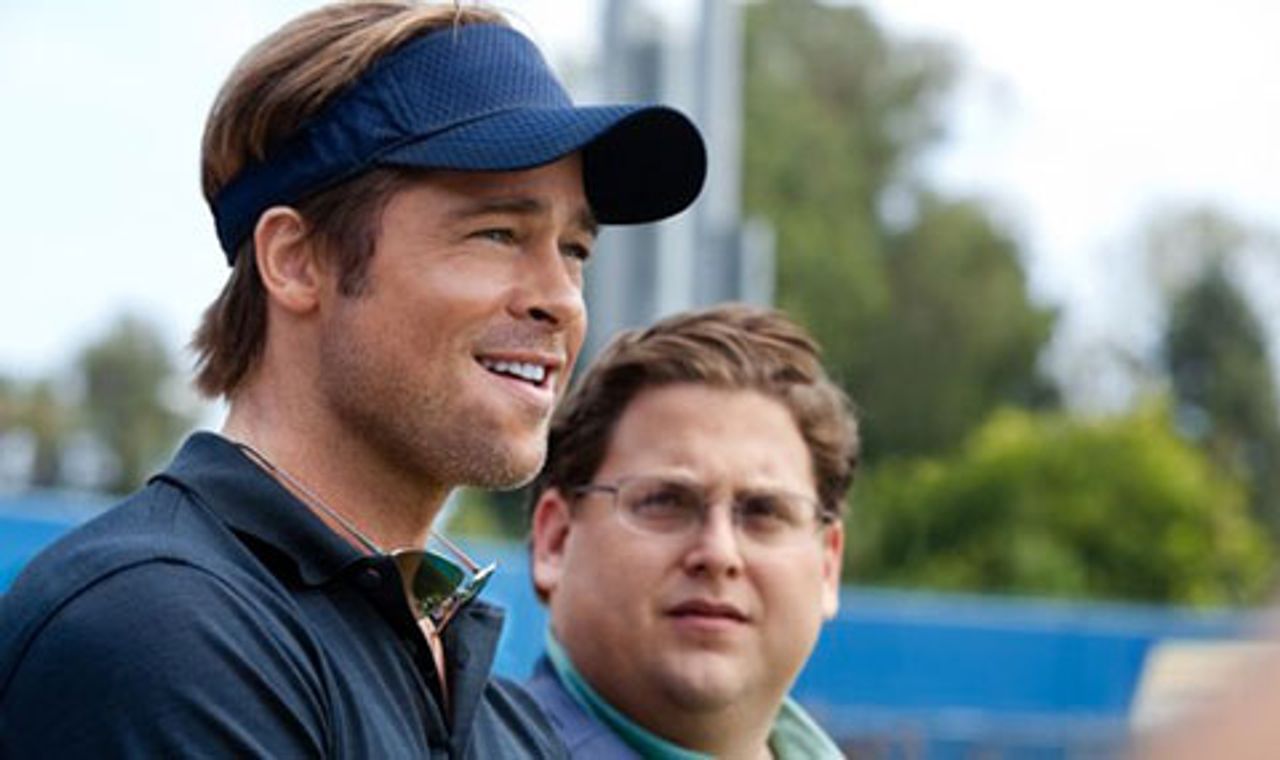The nominations for the 84th annual Academy Awards were announced Tuesday in Los Angeles. Martin Scorsese’s fantasy film Hugo gained the most nominations with 11 in all, while Michel Hazanavicius's silent film drama The Artist followed closely with ten.
Nine films were nominated in the Best Picture category. In addition to Hugo and The Artist, the nominated films include The Descendants, The Help, Midnight in Paris, The Tree of Life, Moneyball, War Horse, and Extremely Loud & Incredibly Close.
While this is not the worst group of films to have been nominated in recent years, it is far from the strongest. A number of the films are well-meaning, some are purely trivial, but all of them are lacking in significant ways.
 The Artist
The ArtistIn surveying the films nominated, one finds no shortage of technical innovation and imagination. Hugo, The Artist and Tree of Life all feature the most fantastic imagery. There is little, it would seem, filmmakers cannot imagine and put on the screen. One searches in vain, however, for profound truths about real life in any of the nominated films.
While there are certainly examples of warmth and intelligence in the films nominated this year, a lack of social perspective and historical knowledge continues to hold artists back. The wealth and insularity of many within the industry, a distancing from ordinary people and their struggles, is also of no help when it comes to creating meaningful works of art.
After a tumultuous year which saw the first mass response to economic crisis and worsening living standards, it is difficult to feel anything but disappointment in approaching a group of films in which so little of the reality and complexity of social life finds expression. One does not feel especially motivated to celebrate much of this work. The nominations process and the awards ceremony which follows have the character of a ritual or, worse, a chore.
Director Martin Scorsese’s sentimental Hugo, based on the children’s novel The Invention of Hugo Cabret, is set in the early 1930s and tells the story of a young orphan living in a railway station and his adventures with another young orphan girl as the two try to rebuild his late father’s beloved automaton. Shot in 3D, the film provided Scorsese and cinematographer Robert Richardson (both nominated for awards in their respective fields) with the opportunity for a tour de force display of imagery and camera movement, but the film accomplished little else.
The Artist, another visual tour de force, tells the story of a silent film star whose notoriety begins to fade during the rise of talking pictures. The film itself is mostly silent, either paying tribute to or parodying classic films of the 1920s. Again, most of the work has gone into the style and appearance of the film. The story itself is predictable and clichéd, and its stylization as a silent film little more than a gimmick.
 The Descendants
The DescendantsThe Help, about a young middle class white woman documenting the lives and struggles of black maids, took up the issue of race and class relations in Mississippi during the 1960s. While the subject matter was promising, the work itself was less than serious. One was struck by the degree to which the Civil Rights struggle itself was almost entirely written out of the movie. A similar lack of seriousness and historical perspective took its toll on Steven Spielberg’s War Horse, about the fate of a young British soldier and his beloved horse during the First World War.
Tree of Life, directed by Terrence Malick, who also received a nomination in the Best Directing category, was a confused and ultimately misanthropic work. The film concerns itself with everything from the very birth of the universe, to the trials of one middle class family in Texas during the 1950s and 1960s, and the fate of one of its sons in the present day. While there were insightful and moving moments to be found in the work, these were few and far between.
We wrote in a WSWS review of the work that the “film as a whole is lacquered over with a coat of unease and pessimism, which never truly dissipates, so that even the moments of delight seem either stolen or forced. The revulsion Malick feels for contemporary Houston … and, by implication, modern American life is palpable, and the most idyllic scene takes place in the afterlife. The overall thrust of the film should be clear.”
 Moneyball
MoneyballMoneyball, about the corrupting influence of enormous sums of money on professional sports, is one of the few Best Picture nominees that had something substantial to offer, particularly in its first half, but feels a relatively tame work by the time it reaches its conclusion. Alexander Payne’s The Descendants is also not without its charms, but is ultimately a fairly timid and conventional work.
Unfortunately, Margin Call, which set its sights directly on the economic crisis and parasitical Wall Street operators, and was one of the strongest films released last year, could not be found among the Best Picture nominees. Writer-director J.C. Chandor received a nomination for Best Original Screenplay, but the film went unrecognized in any other category.
The appearance of Bridesmaids among this year’s nominated films is simply baffling. The very broad comedy—a mixture of crude, gross-out humor and extreme sentimentality—garnered nominations for Best Original Screenplay and Best Supporting Actress, for Melissa McCarthy.
A number of talented performers were nominated in the acting categories. With more than three decades of work behind him, actor Gary Oldman received his first nomination for his performance as George Smiley in Tinker Tailor Soldier Spy. Meryl Streep was nominated for a strong performance as former British Prime Minister Margaret Thatcher in the otherwise poor Iron Lady. Brad Pitt was recognized for another fine performance in Moneyball.
The nomination of Mexican actor Demián Bichir for Best Actor for his performance in A Better Life as an “illegal immigrant” working as a gardener in Los Angeles is significant and well deserved. Something of an oppositional attitude to social inequality comes through in the work.
The talented Michelle Williams also received a well deserved Best Actress nomination for her performance as Marilyn Monroe in My Week with Marilyn. She was the saving grace of an appealing, but limited film.
In the Best Documentary category, Wim Wenders’ beautiful and haunting Pina, a tribute to the life and work of choreographer Pina Bausch, received a well deserved nomination. Paradise Lost 3: Purgatory, about the release from prison of three men wrongly convicted of murdering three children in Arkansas in 1993, was also among the more memorable and powerful films nominated this year.
The Academy Awards will be given out February 26, during the annual televised ceremony in Los Angeles. We will see if this year’s broadcast is any different from the dull and thoroughly routine affair of previous years.
The author also recommends:
Martin Scorsese’s Hugo: A rather drab and disjointed fairytale
[15 December 2011]
The Artist: An amiable gimmick
[7 January 2012]
Terrence Malick’s The Tree of Life: A world of confusion
[20 June 2011]
The Help: A civil rights era film that ignores the civil rights movement
[27 August 2011]
Moneyball, and the uneven playing field of professional sports
[28 October 2011]
